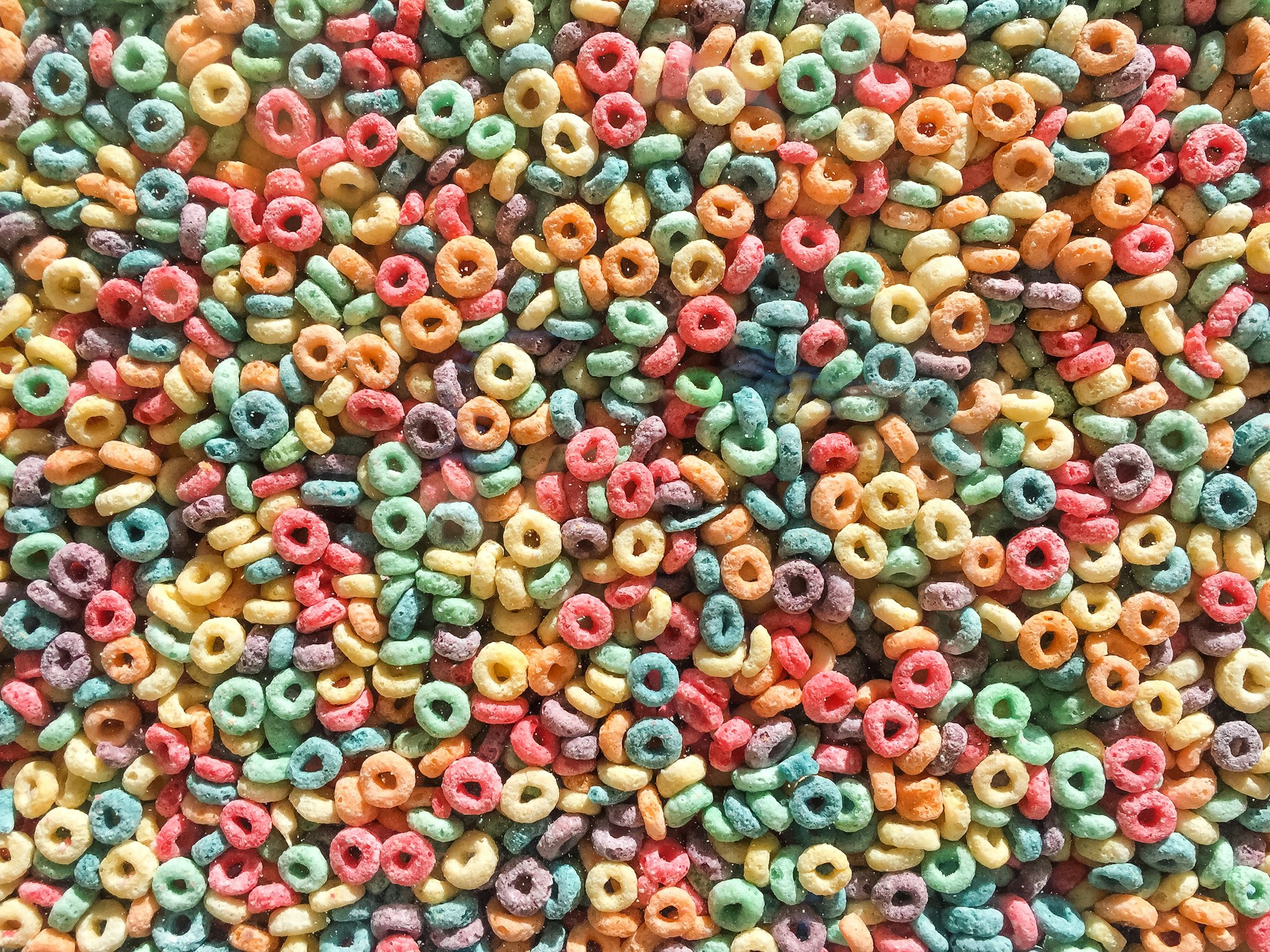Defined by a high intake of processed foods and low fibre consumption, the Western or Standard American Diet (SAD) is linked to an increased risk of obesity, colon cancer and heart disease. Find out why the Western diet is a recipe for poor health- and how the Mediterranean diet can help.
- What is the Western diet?
- The Western diet: how NOT to eat for health
- High in ultra-processed foods
- Low in fibre
- Too much red and processed meat
- Refined grains over nutritious whole grains
- The Mediterranean diet: an antidote to the Western lifestyle
- Article summary
What is the "Western" Diet?
The "Western" Diet refers to the general eating patterns of those in industrialised, highly developed nations, particularly the U.S.
Sometimes referred to as the Standard American Diet, its characterised by a high intake of refined carbohydrates, ultra-processed foods, red meat, refined sugar and saturated fats.
Parallel to this, the diet is low in plant-based fibre such as fruit, vegetables, whole grains and legumes.
The Western diet stands in contrast to more traditional ways of eating, which centre on whole foods like fresh fruit and vegetables whilst containing less meat and sugar.
What's wrong with the Western Diet?

A Western-style diet is a risk factor for multiple non-communicable diseases, including obesity, type-2 diabetes, colonic cancer and coronary heart disease.
A large-scale analysis study published in the prestigious Lancet journal estimates 1 in 5 deaths worldwide are attributable to what is broadly known as the Western diet.
The study found that it not only poses health risks due to what it contains- but equally- and perhaps more so- because of what it lacks.
Let's break down the core elements of the "Western" diet and look at why it's so detrimental to your microbiome and overall health.
High in ultra-processed foods
Ultra-processed foods are a hallmark of the Western diet and make up a significant percentage of caloric intake in industrialised nations, as the following statistics spell out:
- 1 in 5 Brits gets 80% of their daily calories from ultra-processed foods
- The average American gets around 50% of their daily calories from ultra-processed goods
He observed that Brazilians were increasingly consuming heavily processed foods that had undergone extensive chemical modification.
Despite this, nutritional guidelines didn't acknowledge this new breed of food products, assuming Brazilians were still cooking meals using whole ingredients.
In response, Monteiro formulated the NOVA classification table, a system grading food on its level of processing from 1 (minimally processed) to 4 (ultra-processed). Examples of ultra-processed foods include:
- Sugary soft drinks
- Ready meals
- Breakfast cereals
- Instant soup
- Hard candy
- Ice cream.
- Ham
- Crisps
- Mass-produced bread
Other ultra-processed foods, such as industrially made white bread or sugar-sweetened fruit yoghurts, can be harder to identify.
Multiple studies have demonstrated a correlation between a high intake of ultra-processed foods (as per Monteiro's definition) and an increased risk of obesity, heart disease, colon cancer and all-cause mortality.
Even controlling for the poor micro and macronutrient content of ultra-processed foods (typically high in salt, sugar and saturated fat), the associations remain significant.
That suggests there is something unique about ultra-processed foods which are damaging our health. Whilst it's unclear exactly why these foods are so bad for us, several theories have been proposed.
Firstly, many ultra-processed foods are engineered to be hyper-palatable, a scientific word for irresistibly moreish.
Things like a fast food burger or a pack of crisps are packed full of chemicals to enhance flavour, texture and taste, all of which are liable to make you overeat.
In one study, researchers put 20 inpatient adults on an ultra-processed and unprocessed diet for 14 days each.
The participants were allowed to eat as much or as little as they wanted, and the diets were matched for calories, fibre, macronutrients, sugar, sodium and energy density.
The result? Participants consumed 500 more calories daily whilst following the ultra-processed diet, with blood tests showing they had elevated hunger hormones.
Emerging research also suggests that the artificial sweeteners and emulsifiers used in ultra-processed foods may adversely impact the microbiome, increasing its inflammatory potential and activating immune cells in the gut.
Long story short, the available evidence strongly suggests that ultra-processed foods pose a serious health risk, even if the mechanisms haven't been clearly articulated.
Low in fibre

A fibre-poor diet not only affects the regularity of your bowel movements but can also disrupt the diversity and balance of your gut microbiome- the trillions of microbes in your gut influencing immune, metabolic and gastrointestinal health.
Whilst you may enjoy junk food, your beneficial bacteria thrive on dietary fibre from plant-based foods like fruit, veggies, whole grains, nuts and seeds.
When bacteria ferment dietary fibre, they belch out anti-inflammatory compounds such as butyrate- a short-chain fatty acid that nourishes cells in the gut lining and protects against conditions such as ulcerative colitis.
Interestingly, those living in less industrialised countries are consistently shown to boast more microbiome diversity and butyrate-producing bacteria than their highly industrialised counterparts- where the Western diet is most prevalent.
A Western diet starves beneficial bacteria in the gut microbiome due to a lack of fibre, reducing your gut bugs' diversity, balance and anti-inflammatory potential.
Eating a colourful variety of plant-based fibre and prebiotics is the best way to support your resident gut bacteria and encourage beneficial bacteria.
According to Guts, a leading U.K. charity for gastrointestinal conditions, every 10g of the extra fibre reduces your relative risk of bowel cancer by 11%!
Additionally, every additional 7g of fibre in your diet reduces your risk of:
- Cardiovascular disease by 9%
- Heart attacks by 9%
- Strokes by 7%
- Incidence of type two diabetes by 6%
All plant-based foods contain fibre, but some boast exceptionally high levels of a prebiotic called inulin which can feed your "good" microbes. The following foods are particularly good sources of Inulin:
- Jerusalem artichoke
- Green bananas
- Chicory root
- Ginger
TOP TIP: U.K. nutritional guidelines recommend you eat 30g of fibre daily, but the more, the better!
Too much red and processed meat
Alongside a lack of dietary fibre, the Western diet is high in processed and red meats.
In the case of processed meat, there is enough evidence to say it has a causative effect on cancer risk, whilst a causative relationship between red meat and cancer remains slightly more elusive.
Based on a review of over 800 studies, an expert panel formed by the International Agency For Research On Cancer (IARC) categorised processed meat as "definitely carcinogenic" (cancer-causing), whilst red meat was placed one category below as "probably carcinogenic".
It's important to note that the IARC categorisation measures hazard, not risk; in other words, it says how confident researchers are that something can cause cancer, not how likely it is to do so or how much cancer it causes.
Although the panel didn't go as far as to label red meat "definitely carcinogenic", haem pigments in red meat can also form N-nitroso when metabolised by gut bacteria.
Whilst the current research does not permit us to say how much is "too much", research consistently shows that the less red and processed meat you consume, the lower your risk of bowel cancer.
In light of this, we would all do well to reduce our intake of red meat and limit or eliminate processed meat entirely from the diet.
TOP TIP: The national U.K. guidelines suggest that those eating over 90 grams of processed or red meat daily should cut it to 70 or less.
Refined carbohydrates over nutritious whole grains

The Western diet contains far more refined grains than whole grains, but to understand why that's a bad thing, we must quickly examine the structure of cereal products.
In short, a grain kernel comprises three separate parts: the bran, germ and endosperm.
Most of the fibre and mineral content in whole grains are located in the bran and germ, which are responsible for the numerous health benefits attributed to whole grains.
Refined grains contain fewer minerals and less gut-loving fibre than their whole-grain counterparts, depriving them of the health benefits of whole grains.
And low and behold, these carbohydrates play a much bigger role in the Western diet than whole grains.
Moreover, refined grains are metabolised far more quickly than natural whole grains, leading to blood sugar spikes and crashes.
Frequent blood sugar spikes can increase your risk of developing type-2 diabetes and other metabolic disorders as your body becomes resistant to insulin.
A simple way to improve the Western diet is to substitute refined grains (white rice and processed white bread) for nutritious, fibre-rich whole grains like brown rice, rye, quinoa and muesli.
TOP TIP: Take an Atlas Microbiome Test to discover the inflammatory potential of your gut microbiome, including your protection score against five gastrointestinal disorders.
The Mediterranean Diet: an antidote to the Western Lifestyle
The Mediterranean diet is the antithesis of a Western eating pattern, acting as a corrective to its nutritional gaps.
Whereas the Western diet lacks fibre and is enriched in ultra-processed foods, the Mediterranean diet is defined by a colourful variety of minimally processed fruit, vegetables, legumes, whole grains and seeds.
The diet is also low in saturated fats, reducing LDL or "bad" cholesterol alongside your risk of circulatory diseases. Healthier polyunsaturated fats found in foods like olive oil, avocados and nuts are more common in their place.
The Mediterranean diet typically contains much less meat than the Western one, especially red meat. Oily fish such as sardines and mackerel feature prominently, both rich sources of omega-3 fatty acids.
Multiple high-quality, large-scale epidemiological studies have shown that following the Mediterranean diet can reduce your risk of bowel cancer, heart disease, stroke, obesity and all-cause mortality.
A growing body of evidence suggests that following the diet can protect against age-related cognitive decline and neurodegenerative diseases like Alzheimer's as well, though further RCTs are needed to confirm a causative relationship.
Article summary
- The Western diet refers to the typical eating patterns of industrialised, highly developed countries, particularly the U.S.
- The Western diet is characterised by a high intake of ultra-processed foods, refined carbohydrates, saturated fats and free sugar.
- Clinical studies consistently show that the more closely someone follows the Western diet, the higher their risk for non-communicable diseases such as colon cancer, heart disease, obesity and type-2 diabetes.
- 1 in 5 deaths worldwide are attributed to the Western diet, with a low intake of whole grains and fruit alongside excessive sodium responsible for half of the diet-related deaths.
- Those in industrialised, high-income countries generally have less diverse microbiome profiles than those following more "traditional lifestyles," mainly due to the fibre-poor Western diet.
- The Mediterranean diet is a corrective to the Western lifestyle- reducing your risk of heart disease, obesity and cancer where the Western diet increases it.
- The Mediterranean boasts a rich variety of plant-based fibre- shown to feed beneficial bacteria and fuel the production of healthful compounds like butyrate.
☝️DISCLAIMER☝This article is for informational purposes only. It is not intended to constitute or be a substitute for professional medical advice, diagnosis, or treatment.




















